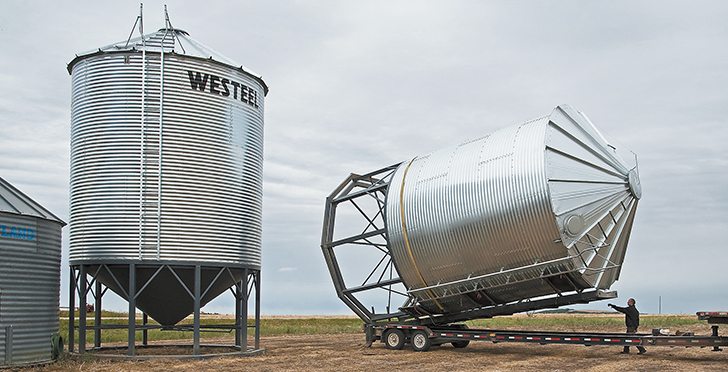Many grain farmers will have the ability to be patient with their sales this year, say analysts.
Marlene Boersch, managing partner of Mercantile Consulting Venture, said growers with pulse crops in their rotations should see respectable early-season returns.
Peas and lentils are among the first crops to be harvested and she estimates farmers have forward sold 25 to 40 percent of the anticipated production.
Another factor that will help growers avoid the usual post-harvest price lows is available bin space.
On-farm stocks of all the major grains in Western Canada as of March 31 was 5.1 million tonnes lower than the same time a year ago and 13 million tonnes lower than two years ago.
Read Also

Pakistan reopens its doors to Canadian canola
Pakistan reopens its doors to Canadian canola after a three-year hiatus.
“I think that will influence the farmer’s ability or the farmer’s willingness to part with the crop,” she said.
Terry Youzwa, chair of the Sask-atchewan Canola Development Commission, said it is a plausible theory.
“Most farmers have forward priced a portion of their production prior to this price decline.”
Youzwa said a lot of farmers have bolstered grain storage capabilities on their farms over time and that has given them the ability to wait out lulls in the market.
“There is a need for some patience right now. We all would like to see nicer numbers than the present market is generating,” he said. “It’s normal for basis to widen and prices to be weaker during the harvest window. We need to take steps to deal with that.”
Chuck Penner, analyst with LeftField Commodity Research, said Western Canada’s ample on-farm grain storage is one positive lasting legacy of the Canadian Wheat Board.
“Canadian farmers are in the unique position of having way more on-farm storage than any other country that I know of,” he said. “That’s largely a legacy of the quota system that wouldn’t allow them to deliver when they wanted to, so they had to build bins to store it.”
He said farmers are heavily forward sold on pulses but not for other crops like wheat and canola.
Penner said huge crops of cereals and oilseeds are likely on the way. Pulses are more questionable due to damage caused by excess rain. The big crop will likely cause some problems with grain movement.
“It’s probably going to be tougher to get grain into the system than a normal year,” he said.
“There will probably be stories of stuff getting backed up again (but) probably not to the extremes that we saw in 2013.”
Grain will face less rail competition from competing commodities such as oil than it did in 2013, but a limited supply of hopper cars still exists.
The reduced movement of competing commodities will free up locomotives and crew, but farm groups have already raised concerns that rail companies have loaned out engines and crew to U.S. railways.
Penner said farmers should have learned the lesson from 2013-14 that they need to have some crop sold in advance of harvest.
“The people who had sold nothing and had no contracts with grain companies, those guys really had a hard time,” he said.
Penner said it is not too late to forward sell a portion of this year’s crop if farmers need the cash flow and are worried about moving their crops.
















